Austria will be appearing in just their third ever European Championships this summer and will be hoping to improve on their previous two attempts to escape the group stage.
Ranked 23rd in the world by FIFA, Franco Foda's men will fancy their chances of progressing into the knockout rounds this time around, although their form needs to improve if they are to secure a top-two place, or one of the four best third-placed spots, in Group C.
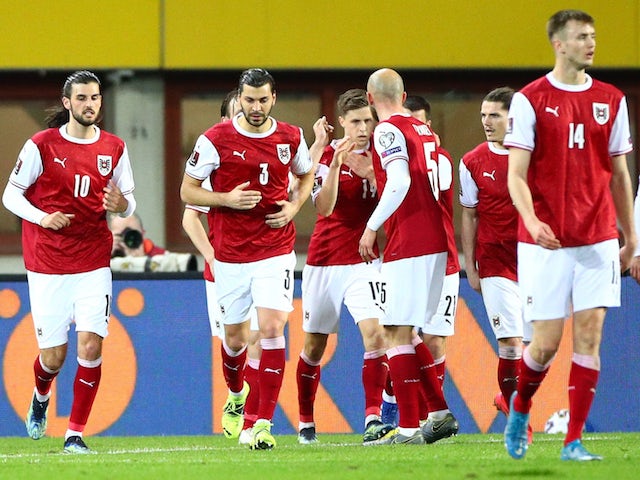 © Reuters
© Reuters
Das Team, who are yet to win a single European Championship match, head into the tournament having failed to score or win any of their last three international games, including both of their warm-up encounters against England and Slovenia.
The Osterreichischer Fussball-Bund are not expected to win their group, but they are eager to advance from the group stage, something the nation has not achieved at any major tournament since the 1982 World Cup.
Here, Sports Mole provides an in-depth assessment of Austria's chances at Euro 2020.
GROUP
Austria qualified as a third seeded team for Euro 2020 and have been joined in Group C with 1988 winners the Netherlands, as well as Ukraine and North Macedonia.
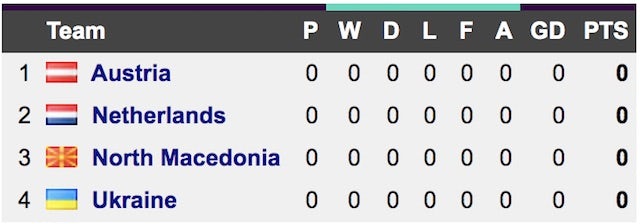
Das Team are already familiar with North Macedonia, having faced them twice during their qualification campaign, winning on both occasions. However, Austria will be less acquainted with Ukraine, who they are to face for the first time in a major tournament, having only previous locked horns in two international friendlies between 2011 and 2012.
The Netherlands, who have never lost to Austria at a major tournament, will be the strong favourites to progress as group winners, while the other three nations will be fighting it out to secure a place in the knockout stage.
FIXTURES
June 13: Austria vs. North Macedonia (5pm, National Arena, Bucharest)
June 17: Netherlands vs. Austria (8pm, Amsterdam ArenA, Amsterdam)
June 21: Ukraine vs. Austria (5pm, National Arena, Bucharest)
HOW THEY QUALIFIED
Austria, who were drawn in qualification Group G along with Poland, North Macedonia, Israel, Slovenia and Latvia, were one of the favourites to progress from their group, although their campaign proved to be far from routine.
Foda's side opened with a 1-0 home defeat to eventual group winners Poland before suffering a disappointing 4-2 loss away in Israel, with their prospects of progressing to the finals appearing slim. However, Das Team bounced back to win six of their next eight matches, scoring 17 goals and conceding just four in the process.
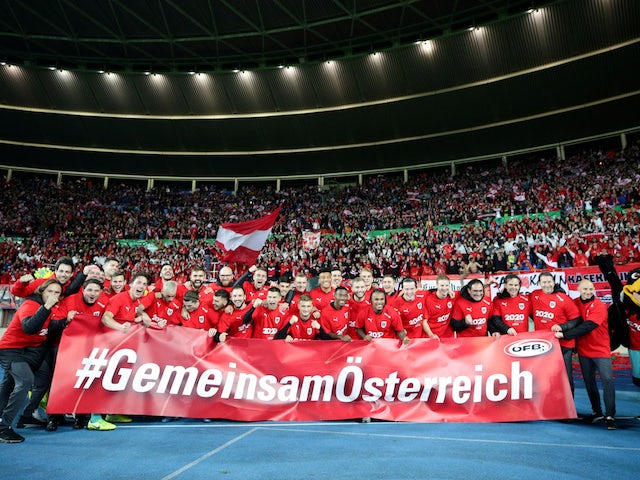 © Reuters
© Reuters
Successive victories over Slovenia and North Macedonia were followed by a thumping 6-0 win over Latvia, a game which they dominated, having 31 shots on goal and 77% possession. Then, a solid defensive display away in Poland earned Austria a goalless draw, before they claimed slender victories against Israel and Slovenia in reverse fixtures.
Austria secured second place in Group G, courtesy of a 2-1 victory over North Macedonia in their penultimate match, with goals from David Alaba and Stefan Lainer ensuring they finished five points clear of their nearest challengers.
Former West Ham United forward Marko Arnautovic was the nation's leading marksman during their qualification campaign with six goals; only Poland's Robert Lewandowski found the net as many times in Group G.
RECENT FORM
Since their Euro 2020 qualification campaign came to a conclusion in November 2019, Austria have played 11 international matches, winning only five.
Four of these were in League B Group 1 of the Nations League, which helped them to win their group and secure promotion.
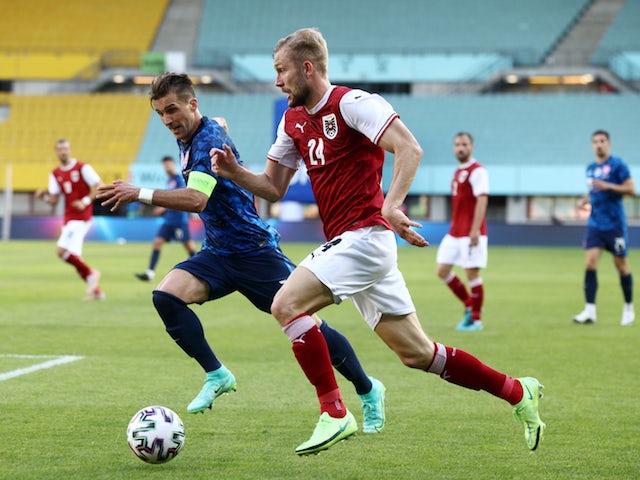 © Reuters
© Reuters
Foda's men, however, have had a mixed start to their World Cup qualifiers that began in March, claiming only four points from their opening three matches, including a 4-0 thrashing at home by Denmark.
Austria have failed to score in any of their last three games, including their most recent pre-Euro 2020 warm-up encounters with England and Slovenia, losing 1-0 and drawing 0-0 respectively.
Foda will be hoping his side can find their shooting boots and rediscover their form in front of goal for their opening Euro 2020 fixture against North Macedonia, a nation they scored six times against during the qualification campaign.
SQUAD
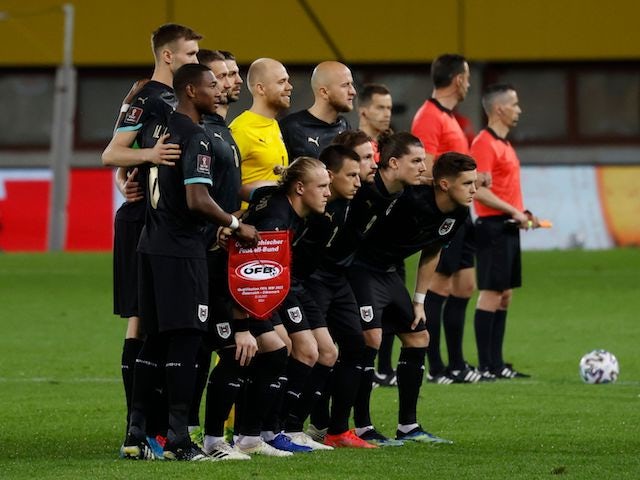 © Reuters
© Reuters
Goalkeepers: Alexander Schlager (LASK Linz), Pavao Pervan (Wolfsburg), Daniel Bachmann (Watford)
Defenders: Andreas Ulmer (RB Salzburg), Aleksandar Dragovic (Red Star Belgrade), Martin Hinteregger (Eintracht Frankfurt), Stefan Posch (Hoffenheim), Philipp Lienhart (Freiburg), Christopher Trimmel (Union Berlin), Stefan Lainer (Borussia Monchengladbach), Marco Friedl (Werder Bremen)
Midfielders: Stefan Ilsanker (Eintracht Frankfurt), David Alaba (Bayern Munich), Florian Grillitsch (Hoffenheim), Julian Baumgartlinger (Bayer Leverkusen), Louis Schaub (FC Luzern), Alessandro Schopf (Schalke 04), Christoph Baumgartner (Hoffenheim), Valentino Lazaro (Borussia Monchengladbach), Xaver Schlager (Wolfsburg), Konrad Laimer (RB Leipzig)
Forwards: Marko Arnautovic (Shanghai SIPG), Marcel Sabitzer (RB Leipzig), Michael Gregoritsch (Augsburg), Karim Onisiwo (Mainz 05), Sasa Kalajdzic (Stuttgart)
STAR PLAYER - David Alaba
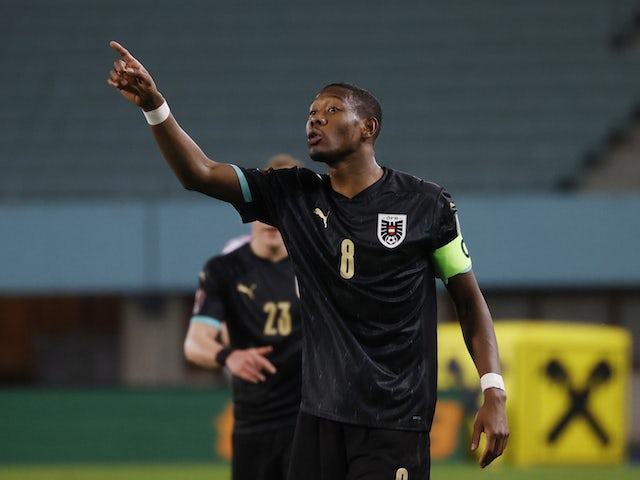 © Reuters
© Reuters
David Alaba has had a colossal impact on the Austrian national team since becoming the country's youngest ever international player, when he made his debut in October 2009 aged just 17.
After agreeing to leave German giants Bayern Munich to join Spanish outfit Real Madrid for the start of next season, the 29-year-old is now fully focused on helping Das Team elevate their status on the European stage.
Alaba is well known for his versatility which has seen him play at left-back, in central midfield and on both flanks. The former Austria Wien star has played mostly in defence at club level, but tends to operate in advanced midfield areas for the national team and this is where he is likely to play again at Euro 2020, a decision which splits opinion amongst the nation's fanbase.
The six-time Austrian Footballer of the Year was a serial winner at Bayern, winning nine Bundesliga titles as well as two Champions League triumphs, and his experience at the highest level will prove invaluable for Foda's side.
Alaba was a key figure for the national team at Euro 2016, establishing his reputation as a creative anchor and penalty specialist, and he will be hoping he can stamp his authority on the Austrian side once again this summer.
MANAGER - Franco Foda
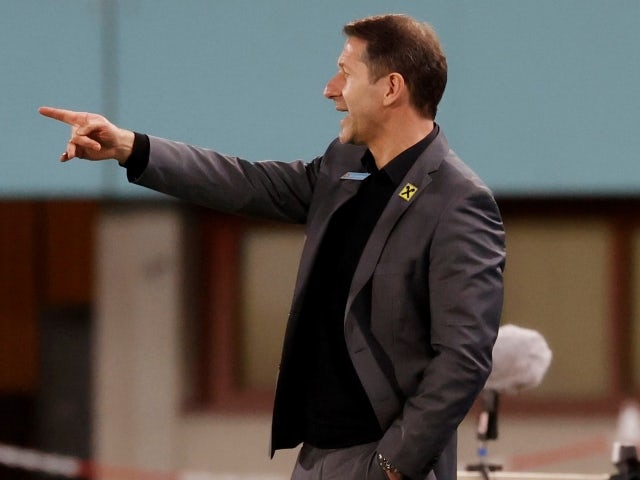 © Reuters
© Reuters
Franco Foda will be leading the Austrian side at his first major tournament as a manager, after succeeding Marcel Koller in 2018, who led the national team at the last European Championships.
The 55-year-old is a former West German international, who won just two caps in the 1980s under Franz Beckenbauer. Foda carved out a more successful club career in the Bundesliga with the likes of Kaiserslautern, Bayer Leverkusen and Stuttgart, before finishing with Austrian side Sturm Graz, where he won four domestic trophies.
Shortly after his retirement in 2001, he turned to coaching and enjoyed a prolonged spell with former side Sturm Graz as well as a brief stint back at Kaiserslautern. Foda was with Sturm Graz on three separate occasions between 2003 and 2017, winning the Austrian Cup in 2009-10 and the Austrian Bundesliga in 2010-11, a period which alerted the national team's hierarchy, who appointed him as head coach in January 2018.
Foda has yet to put a foot wrong at the helm, guiding Austria to League A promotion in the Nations League and through the European Championship qualifiers, finishing second in Group G.
The German now has the task of guiding Austria to the latter stages of Europe's elite international competition for the first time in their history.
EUROPEAN CHAMPIONSHIP RECORD
Best finish: Group stage (2008, 2016)
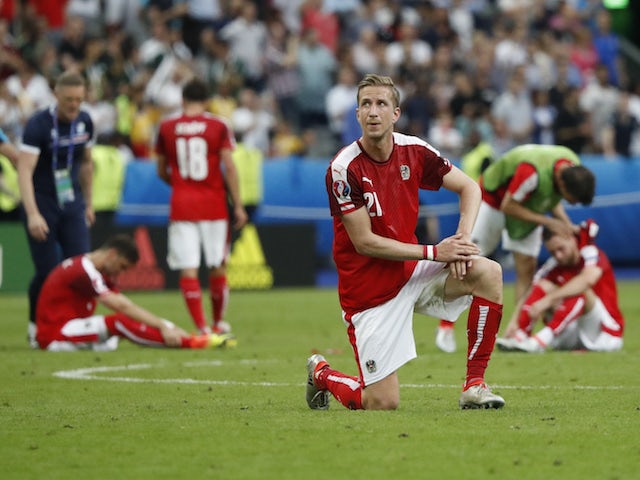 © Reuters
© Reuters
Austria made their European Championship debut in 2008, when they automatically qualified as co-hosts along with Switzerland. They then progressed to Euro 2016 after an impressive unbeaten qualification campaign, winning nine and drawing one of their 10 matches.
However, in both major tournaments, Austria were eliminated in the group stage, losing two and drawing one of their three games, meaning Das Team are yet to win a single game at the finals.
In fact, Austria have failed to progress from the group stage of any major international competition since the 1982 World Cup in Spain, where they made it to the quarter-finals.
Austria's inability to qualify for the 2018 World Cup was followed by the appointment of Foda, who is hoping to become only the fifth manager in the national team's history – after Helmut Senekowitsch, Georg Schmidt, Walter Nausch, and Hugo Meisl – to progress to the knockout stages of a major tournament.
PREDICTION
Haunted by their failure to progress from the group stages in 2008 and 2016, Foda is aware that his Austrian team need to brush aside previous woes if they are to have any impact at Euro 2020.
Claiming points, preferably victories, against North Macedonia and Ukraine either side of their toughest fixture against the Netherlands, will give them a fighting chance of securing a top-two spot in Group C.
However, their form in front of goal is a concern heading into the tournament and this could prove to be one of their major downfalls, which may ultimately cost them a place in the knockout stage.
VERDICT: Third in Group C









